Flybits and City of Ottawa Launch Ottawa Nav
The City of Ottawa and Flybits Unveil New Traffic Management Tool That Provides Real-Time Traveler Information to Residents TORONTO, November 18, 2013 — The City of Ottawa and Flybits, an…
The City of Ottawa and Flybits Unveil New Traffic Management Tool That Provides Real-Time Traveler Information to Residents TORONTO, November 18, 2013 — The City of Ottawa and Flybits, an…
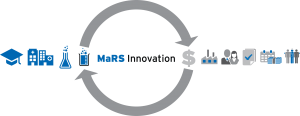
MaRS Innovation (MI) has launched a unique funding program to match researchers with industry partners while advancing early stage technologies: the MaRS Innovation Industry Access Program (MI-IAP).
This program provides a simple mechanism to connect researchers with MI’s industry partners. The process and application form are intentionally brief to save researchers time and allow MI’s partners to review a wide range of remarkable technologies within the Toronto academic community in a short period of time.
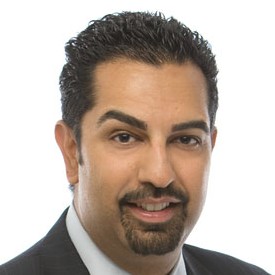
“Many granting programs require an industry partner, but leave finding that partner to the researcher,” says Parimal Nathwani, vice-president of life sciences at MI. “Our Industrial Partnership Program completes that step for them. We also know researchers within our member institutions are incredibly busy, which is why we’ve adopted a streamlined process to save them time.”
The program is open to any researcher affiliated with our 16 member institutions working on technologies in:
The WaveCheck Indiegogo campaign continues to generate wide support from MaRS Innovation’s community. To give back and show their appreciation, the campaign team hosted a reception at Sunnybrook Health Sciences Centre in the Louise Temerty Breast Cancer Centre on November 6, 2013.
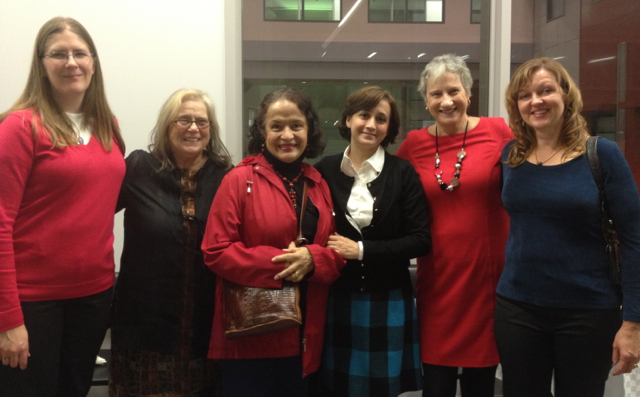
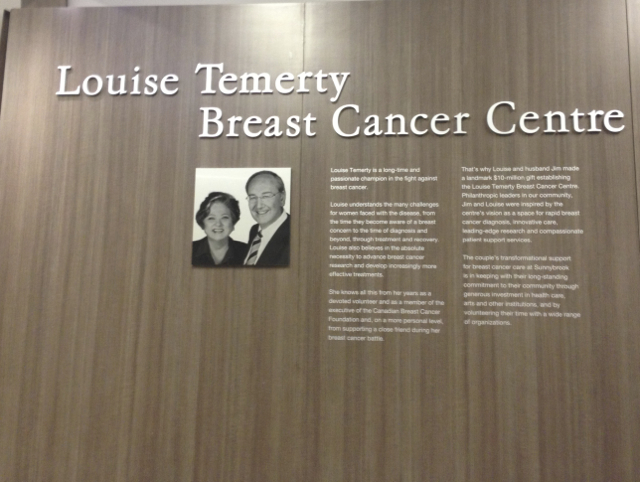
Present were several members of the Women’s Art Association of Canada (WAAC) who donated 11 of the 15 artworks to the campaign. Also present was Dale Butterill, president of WAAC, who expressed support during her opening remarks. Together with members of WAAC, contributing artists donated over $15,000 worth of art to the campaign.
 Over 340 people worldwide have joined WaveCheck‘s Indiegogo crowdfunding campaign to fund a breakthrough clinical technique for breast cancer that promises to revolutionize the way chemotherapy is monitored.
Over 340 people worldwide have joined WaveCheck‘s Indiegogo crowdfunding campaign to fund a breakthrough clinical technique for breast cancer that promises to revolutionize the way chemotherapy is monitored.
“Breast Cancer Awareness Month’s positivity makes it easy to overlook the fact that 60 to 70 per cent of chemotherapy treatments fail,” says Dr. Gregory Czarnota, chief of Radiation Oncology at Sunnybrook Health Sciences Centre and co-inventor of WaveCheck with Professor Michael C. Kolios of Ryerson University. “WaveCheck’s technology can tell people with breast cancer and their doctors if a particular chemotherapy is working in as little as four weeks.”
WaveCheck’s campaign made the Top 10 list for the most financially successful Canadian crowdfunding campaigns on both Kickstarter and Indiegogo in Globe and Mail’s Report on Small Business. CTV News Channel, CBC Toronto News (see the above clip), CBC Radio Canada and Canadian Healthcare Technology have also covered the project, along with Oshawa Today (radio), The Ryersonian and The Eyeopener.

In an October 30 article, Yonge Street Media‘s Andrew Seale spoke with MI’s president and CEO Raphael Hofstein on the booming healthcare innovation coming from Toronto since 2005.
Seale’s article is the first of a two-part series on technological innovation.
In the article, Hofstein credits the city’s intellectual infrastructure and access to healthcare resources for allowing innovation to flourish.
Three of MI’s start-up companies are also mentioned in the article.
Here’s an excerpt (links and emphasis our own):
“The Intellectual Property that is being generated in Toronto (is) a major chunk of the IP that’s being generated across Canada,” he says.
He points to ChipCare Corporation‘s state-of-the-art handheld analyzer, which allows doctors to run multiple diagnostics on a patient’s blood on site as opposed to bringing the patient to the clinic. The University of Toronto developed cell analyzer could prove to be a game changer in the fight against HIV. “Lab-in-a-chip” technology like this is crucial in third world countries where healthcare access is severely limited.
Xagenic’s AuRA platform—another diagnostic tool for blood samples—uses ultra sensitive microelectrode arrays (nano-sensors) developed by another team of researchers at University of Toronto. The inexpensive tech makes it possible for molecular diagnostic testing outside of labs.
MaRS Innovation-backed ApneaDX has developed a clinical-quality sleep-monitoring tool. Previously, diagnosing for sleep apnea—a sleep disorder characterized by abnormal breathing patterns—often required an expensive overnight stay at a sleep clinic. The device is a fraction of the cost and records the data on a chip, which is then analyzed by the company’s software.
Bedside Clinical Systems to bring paediatric care solution to U.S. hospitals TORONTO, Canada (October 24, 2013) — Bedside Clinical Systems (BCS)’s flagship solution, Bedside Paediatric Early Warning System (BedsidePEWSTM), has…
 On October 11, 2013, The Hindustan Times covered a technology developed by UTEST start-up graduate Thotra (invented by Frank Rudzicz) for its speech-transformation software.
On October 11, 2013, The Hindustan Times covered a technology developed by UTEST start-up graduate Thotra (invented by Frank Rudzicz) for its speech-transformation software.
The article commends Thotra for recognizing the communications gap surrounding accents, hailing the technology as the solution to “put an end to all accent problems.”
On October 2, 2013, Thotra’s technology was also covered in the National Post:
The software, which filters out aspects of speech that can hinder comprehension, is put to the test by processing lines from Colin Firth in the movie The King’s Speech. The results showcase the potential of the software and how it can assist comprehension of accents.
Toronto, Canada (October 9, 2013) — WaveCheck — a painless, non-surgical clinical technique developed by a Sunnybrook Health Sciences Centre oncologist and a Ryerson University physicist and supported by MaRS Innovation — is poised to transform chemotherapy response monitoring for women with breast cancer.
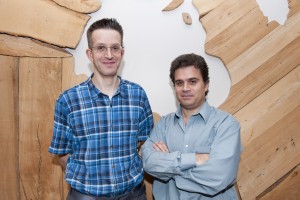
WaveCheck combines traditional ultrasound with new software to detect responses to chemotherapy in breast cancer tissues. By making better, more accurate information available about a woman’s response to her chemotherapy treatment in weeks rather than months, WaveCheck creates greater transparency through dialogue between a women and her doctors, empowering her to participate in discussions about whether a given chemotherapy treatment is effective.
Contribute to WaveCheck‘s Indiegogo campaign and help make this technology available to all women with breast cancer faster.
Media coverage: CTV News Channel, the Globe and Mail and Canadian Healthcare Technology have covered WaveCheck’s campaign.
Developed by Dr. Gregory Czarnota, chief of Radiation Oncology at Sunnybrook’s Odette Cancer Centre, and Michael C. Kolios, professor of Physics and Canada Research Chair in Biomedical Applications of Ultrasound at Ryerson, WaveCheck has been used in clinical studies with nearly 100 women receiving upfront, neoadjuvant chemotherapy to treat locally-advanced breast cancer. These results are published in two leading journals, Clinical Cancer Research and Translational Oncology.
In the Indiegogo campaign video, Czarnota, Kolios and three of the 100 women who participated in the first Sunnybrook study explain WaveCheck’s impact.
“The hard truth for women with breast cancer is that 60 to 70 per cent of chemotherapy treatments fail,” said Czarnota, who is also a senior scientist and director of cancer research at Sunnybrook Research Institute and assistant professor in the University of Toronto’s Departments of Radiation Oncology and Medical Biophysics within the Faculty of Medicine. “The 1.5 million women worldwide who will be diagnosed with breast cancer this year need to know that their chemotherapy is working as soon as possible. But this kind of treatment monitoring doesn’t currently exist in standard clinical practice. Instead, a woman’s tumour response is evaluated after she completes her chemotherapy treatment, which is typically a four- to six-month process.
Posted online on October 2, 2013, the article explains how the Centres of Excellence in Commercialization and Research (CECR) programme, and specifically MaRS Innovation, develop research and put it into practice:
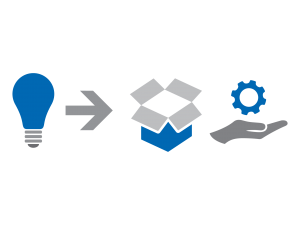
“MARS Innovation and its sister organization MARS Discovery District are not-for-profit organizations that are tightly integrated in Canadian research commercialization. They are based in a heritage building that once belonged to the Toronto University Hospital, in the heart of the city’s ‘discovery district’ — the inner-city conglomeration of universities, institutes and hospitals which has a reputation as a research hotbed. “Here, all the different actors in the commercialization sphere come together in one space,” says Ilse Treurnicht, CEO of MARS Discovery District.
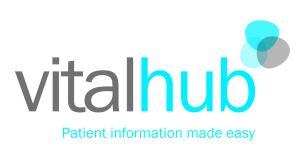 VitalHub is building on its success in redefining how doctors access patient data by partnering with Box, which announced 13 new partnerships with companies, including VitalHub.
VitalHub is building on its success in redefining how doctors access patient data by partnering with Box, which announced 13 new partnerships with companies, including VitalHub.
Together, their technology will work across web and mobile devices to help healthcare organizations work with, share and collaborate using information.
Invented at Toronto’s Mount Sinai Hospital in the IT Department, VitalHub was created to effectively manage patient data through a platform allowing clinicians to rapidly access comprehensive, relevant patient information gathered from multiple disparate clinical information systems.
The VitalHub Server platform sits on top of whatever clinical enterprise systems the hospital, community physician practice or healthcare organization already has in place.